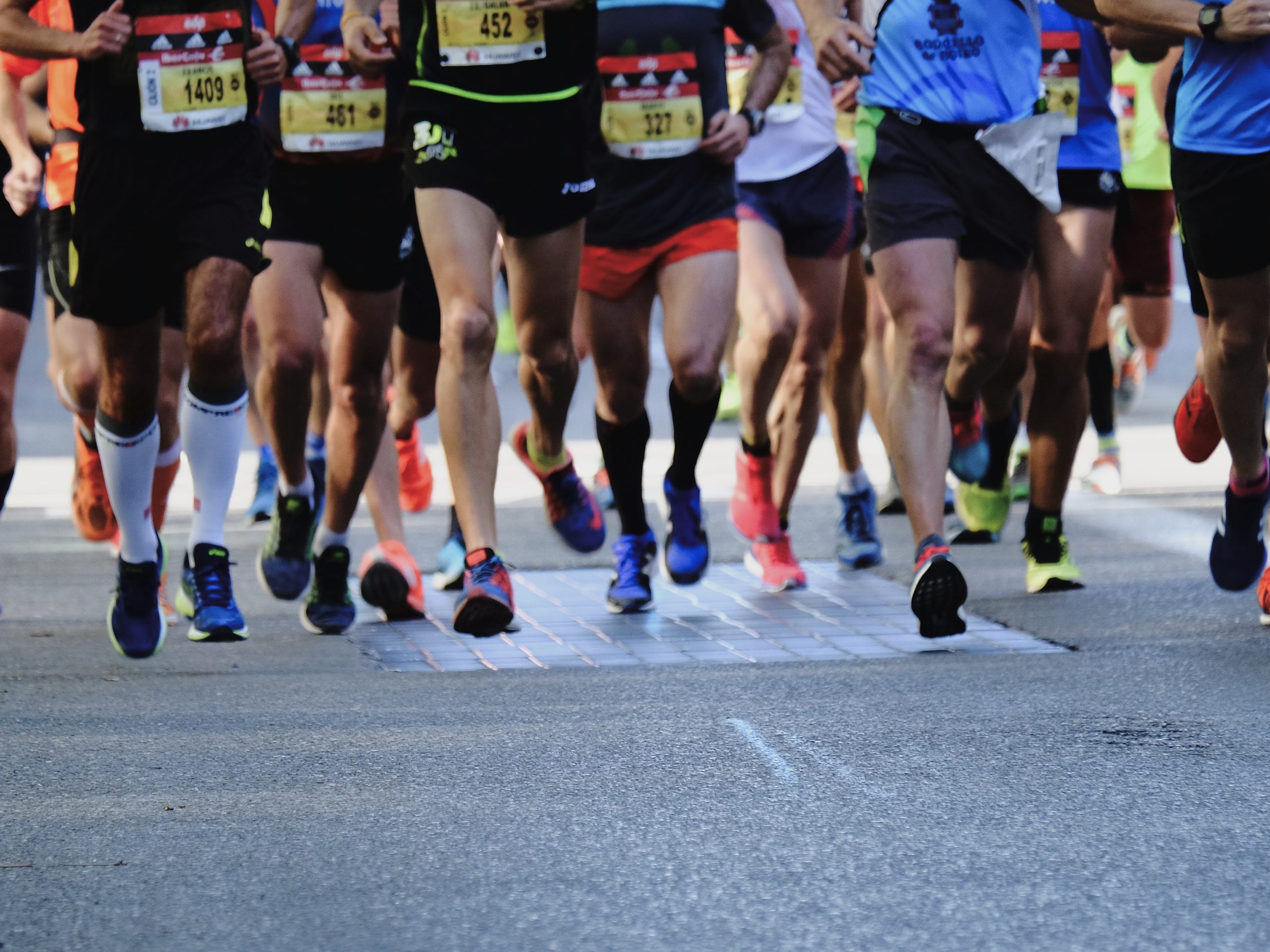FROM START TO FINISH
A Guide to Running a Marathon

Running a marathon is a monumental achievement that requires dedication, discipline, and careful preparation. Whether you are a seasoned runner looking to tackle the 42km challenge or a beginner aiming to cross that finish line, this comprehensive guide will provide you with valuable insights and tips to help you reach your marathon goals. From setting realistic expectations to training effectively, fuelling your body, and managing race day, let’s embark on a journey to conquer the ultimate running feat.
Set Your Goals and Plan
Before diving into marathon training, it’s crucial to establish clear goals. Determine your desired finishing time or focus on simply completing the marathon. Set realistic expectations based on your fitness level and previous running experience. Once you have your goals in mind, create a training plan that gradually increases mileage, incorporates rest days, and includes cross-training activities to prevent injury and build endurance.
Cross-Training and Strength Training
Before diving into marathon training, it’s crucial to establish clear goals. Determine your desired finishing time or focus on simply completing the marathon. Set realistic expectations based on your fitness level and previous running experience. Once you have your goals in mind, create a training plan that gradually increases mileage, incorporates rest days, and includes cross-training activities to prevent injury and build endurance.
Taper and Recovery
Before diving into marathon training, it’s crucial to establish clear goals. Determine your desired finishing time or focus on simply completing the marathon. Set realistic expectations based on your fitness level and previous running experience. Once you have your goals in mind, create a training plan that gradually increases mileage, incorporates rest days, and includes cross-training activities to prevent injury and build endurance.

Build Your Base
If you’re new to running or have been on a break, it’s important to build a solid running foundation before starting marathon training. Begin with shorter distances, such as 5K or 10K races, and gradually increase your mileage over several months. This base- building phase helps condition your body for the demands of marathon training.
Proper Nutrition and Hydration
Fuelling your body with the right nutrients is vital for marathon training. Consume a balanced diet that includes complex carbohydrates, lean proteins, healthy fats, and plenty of fruits and vegetables. Adequate hydration is also crucial, both during training runs and in daily life. Drink enough water and consider electrolyte-rich beverages for longer runs. Experiment with different nutrition strategies during training to find what works best for you on race day.
Race Day Strategies
On race day, arrive early, familiarise yourself with the course, and stick to your planned pacing strategy. Start at a comfortable pace and gradually increase if you feel strong. Stay hydrated at aid stations, and refuel with energy gels or snacks if needed. Mentally break the race into smaller segments, focusing on one kilometre at a time. Embrace the support of fellow runners and spectators to keep your motivation high.
Follow a Structured Training Program
Adopting a structured training program is essential for marathon success. Consider working with a running coach or utilising reputable training plans designed specifically for marathons. These programs typically incorporate a combination of easy runs, long runs, speed work, and recovery days to improve endurance, speed, and overall fitness.
Practice Long Runs
Long runs are the backbone of marathon training. Gradually increase the distance of your long runs each week, simulating race conditions as much as possible. Practice fuelling and hydrating during these runs to find what works best for your body. Build up to running at least 40 km before race day to ensure your body is prepared for the full marathon distance.
Post-Marathon Recovery
After completing the marathon, prioritise recovery to allow your body to heal and rejuvenate. Rest, gentle stretching, and light activities like walking or easy cycling can help with muscle soreness. Gradually ease back into running and set new goals for future races or personal achievements.